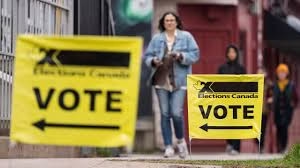Prime Minister Mark Carney’s Liberal Party won Canada’s federal election on Monday, completing a dramatic political turnaround fueled by U.S. President Donald Trump’s annexation threats and trade war.
As polls closed, the Liberals were projected to secure more of Parliament’s 343 seats than the Conservative Party, although it was initially unclear whether they would achieve an outright majority or would need support from smaller parties to form a government and pass legislation.
The Liberals had been heading toward a heavy defeat until Trump’s aggressive rhetoric—attacking Canada’s economy and suggesting the country should become the 51st U.S. state—sparked a wave of Canadian nationalism. This surge helped the Liberals shift momentum and secure a fourth consecutive term.
“We were dead and buried in December. Now we are going to form a government,” former Liberal Justice Minister David Lametti told broadcaster CTV. “We have turned this around thanks to Mark.”
Conservative leader Pierre Poilievre had tried to make the election a referendum on former Prime Minister Justin Trudeau, whose popularity fell after a decade in power as living costs rose. But Trump’s interventions, Trudeau’s resignation, and Carney’s leadership reshaped the political landscape.
Even as Canadians mourned a deadly attack at a Vancouver street festival, Trump continued to taunt them on election day, posting on social media that Canada should become the 51st state and falsely claiming that the U.S. subsidizes Canada.
Trump’s provocations triggered widespread anger, with many Canadians canceling U.S. vacations, boycotting American goods, and participating in early voting. A record 7.3 million Canadians cast ballots before election day.
“The Americans want to break us so they can own us,” Carney warned during the final days of the campaign. “Those aren’t just words. That’s what’s at risk.”
Poilievre, casting his ballot in Ottawa, urged voters to “Get out to vote — for a change.” However, his Trump-style campaign tactics may have alienated many Canadians.
Reid Warren, a Toronto resident, said he voted Liberal because Poilievre “sounds like mini-Trump to me,” adding that Trump’s tariff threats were also a concern.
Historian Robert Bothwell noted that Poilievre tapped into the “same sense of grievance” as Trump but ultimately paid the price with voters. “The Liberals ought to pay him,” Bothwell remarked about Trump’s impact. “Trump talking is not good for the Conservatives.”
Despite the victory, Carney and the Liberals face major challenges ahead.
Foreign policy hadn’t dominated a Canadian election this strongly since 1988, when free trade with the U.S. was the central issue. Now, with over 75% of Canadian exports tied to the American market, Trump’s tariffs and threats to relocate auto manufacturing southward could seriously harm Canada’s economy.
Carney pledged that revenue from counter-tariffs on U.S. goods would be used to support Canadian workers hurt by the trade war. He also promised to maintain dental care coverage, cut taxes for the middle class, manage immigration at sustainable levels, and boost funding for the Canadian Broadcasting Corporation.



